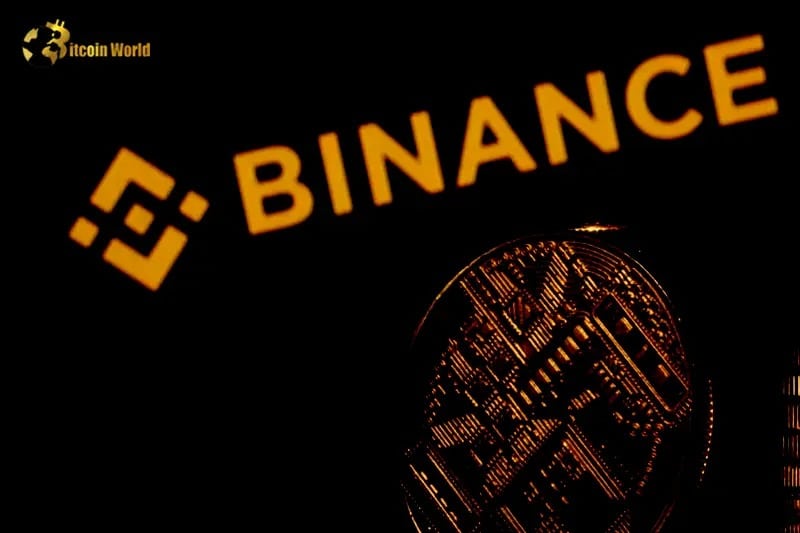Are you a Binance user in Hong Kong? You need to be extra vigilant! Hong Kong police have issued a serious alert about a wave of phishing scams targeting Binance customers. Imagine getting a text message that looks like it’s from Binance, urging you to verify your account immediately. Sounds official, right? Unfortunately, that’s exactly what scammers are banking on, and it’s costing users dearly.
What’s Happening? The Phishing Scam Explained
The Cyber Security and Technology Crime Bureau of the Hong Kong Police Force, through their “CyberDefender” Facebook page, warned about these malicious SMS messages. These messages are designed to trick you into clicking a link and handing over your Binance account details.
Here’s how the scam typically unfolds:
- Fake SMS Alert: You receive a text message seemingly from Binance.
- Urgent Verification Request: The message claims you need to verify your identity by clicking a link, often with a looming deadline.
- Phishing Link: The link leads to a fake website that looks very much like the real Binance login page.
- Account Compromise: If you enter your login details on this fake site, scammers gain full access to your Binance account.
- Funds Stolen: Once in, they waste no time in emptying your crypto wallets.
Think it can’t happen to you? Think again. In just the last two weeks, 11 Hong Kong-based Binance users have reported losing a staggering $446,000 (3.5 million Hong Kong dollars) to this very scam. That’s a hefty sum, highlighting how sophisticated and effective these phishing attacks can be.
Be aware of SMS phishing. https://t.co/ik9JTvV9Sf
— CZ 🔶 Binance (@cz_binance) October 9, 2023
Hong Kong Police to the Rescue: What Are They Doing?
The Hong Kong Police are taking this seriously. They’re urging anyone who suspects they’ve received a fraudulent message to report it immediately. You can do this through the “fraud prevention” section of their official CyberDefender website. This platform, launched in May by the Cyber Security and Technology Crime Bureau, is dedicated to boosting online security awareness among Hong Kong citizens.
In a proactive move, the police have also shared a link to the Hong Kong Securities and Futures Commission (SFC)’s newly released list of verified virtual asset trading platforms. This is crucial because, currently, only two exchanges – HashKey and OSL – are fully licensed for retail crypto investment in Hong Kong. Using licensed platforms is a key step in protecting yourself.
Why is Hong Kong a Hotspot for Crypto Scams Right Now?
Unfortunately, Hong Kong’s crypto scene is currently facing a wave of scams and fraudulent activities. The recent JPEX crypto exchange scandal has significantly shaken investor confidence. Estimates suggest losses from JPEX could balloon to a staggering $180 million, with over 2,300 Hong Kong investors already filing complaints.
JPEX, an unlicensed exchange, allegedly lured users with aggressive marketing and promises of suspiciously high returns. When the SFC issued warnings, JPEX reportedly increased withdrawal fees dramatically, essentially locking users out of their funds.
Dubbed the largest financial fraud in Hong Kong’s history, the JPEX scandal has prompted the SFC to take stronger action. They’ve announced plans to publish lists of both licensed and “suspicious” crypto platforms to help investors make informed decisions and avoid potential scams.
Protect Yourself: Actionable Steps to Stay Safe
In this risky environment, protecting your crypto assets is more critical than ever. Here’s what you can do:
- Be Suspicious of SMS Messages: Never click on links in SMS messages claiming to be from Binance or any crypto exchange, especially if they demand urgent action.
- Verify Directly: Always log in to your Binance account directly through the official website or app – type the address yourself.
- Enable 2FA: Use Two-Factor Authentication (2FA) for an extra layer of security.
- Check Official Channels: Binance and other legitimate platforms will usually communicate important updates via email and official announcements on their websites, not just SMS.
- Report Suspicious Activity: If you receive a suspicious message, report it to the Hong Kong police via the CyberDefender website and to Binance support.
- Use Licensed Platforms: Consider using only SFC-licensed crypto exchanges in Hong Kong like HashKey and OSL for retail investments.
- Stay Informed: Keep up-to-date with the latest security threats and warnings from official sources like the Hong Kong Police and SFC.
In Conclusion: Stay Alert, Stay Safe
The recent phishing scams targeting Binance users in Hong Kong are a stark reminder of the ongoing risks in the crypto world. Coupled with the JPEX scandal, it’s clear that vigilance and caution are paramount. By staying informed, being skeptical of unsolicited messages, and utilizing security best practices, you can significantly reduce your risk and protect your valuable crypto assets. Don’t become the next victim – be cyber smart and stay safe!
Disclaimer: The information provided is not trading advice, Bitcoinworld.co.in holds no liability for any investments made based on the information provided on this page. We strongly recommend independent research and/or consultation with a qualified professional before making any investment decisions.




